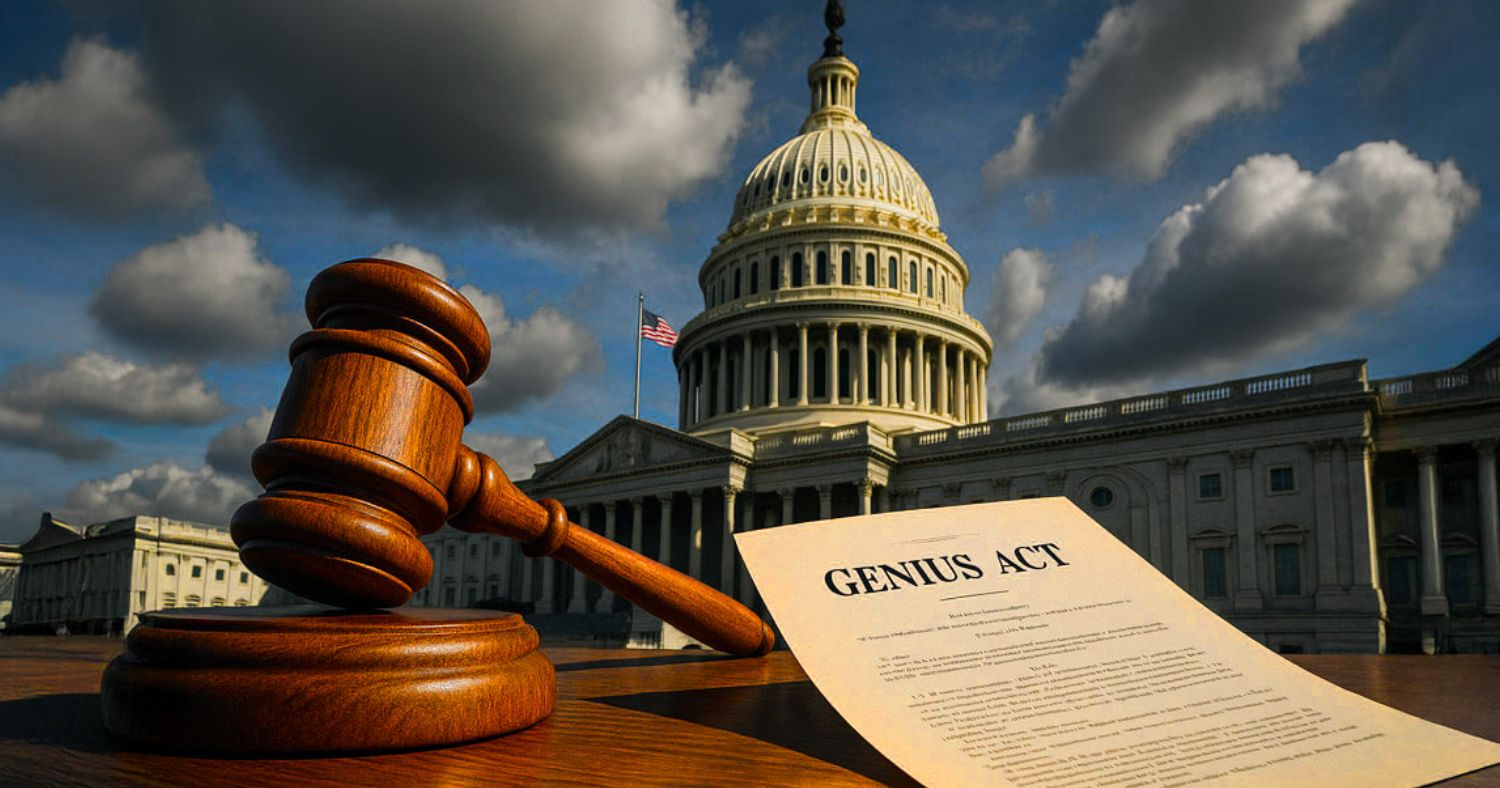The recent passage of the GENIUS Act has ignited a fierce debate in Washington, with critics, led by Senator Elizabeth Warren, drawing alarming parallels to the 2008 financial crisis. At the heart of the controversy is the act’s approach to stablecoin regulation, prompting questions about its potential to foster unprecedented financial chaos rather than bring clarity to the burgeoning crypto market.
Senator Warren, a prominent voice on financial oversight, minced no words in a recent interview, expressing deep concern for the state of the republic. Her primary criticisms of the GENIUS Act revolve around three key points:
• Self-Enrichment Opportunities: Warren alleges that the law creates “unlimited opportunities for self-enrichment” for the President and Vice President, who are now permitted to establish their own stablecoins. She specifically cited former President Trump’s reported $1 billion earnings from various crypto projects, including branded memecoins like Official Trump and Melania, and a stablecoin, USD1, from his World Liberty Finance company.
• Industry Influence: She contends that the legislation was “heavily influenced by the industry actors,” designed to prioritize their interests over the well-being of the American public. Warren pointed to the dissolution of the Department of Justice’s cryptocurrency enforcement unit as a move that reduced independent oversight.
• Echoes of Deregulation: Most strikingly, Warren likens the GENIUS Act to the Commodity Futures Modernization Act (CFMA) of 2000, a piece of legislation that she argues laid the groundwork for the 2008 financial meltdown by deregulating over-the-counter derivatives.
The comparison to the CFMA is potent. The 2000 act, intended to provide a framework for derivatives trading, was instead criticized for being excessively loose, inadvertently unleashing a torrent of complex financial products that contributed significantly to the Great Recession. Critics of the GENIUS Act fear a similar outcome, envisioning a future where every major tech company issues its own “private dollar” stablecoin. As economics professor Barry Eichengreen warned, this scenario could drag the U.S. back to the “Free Banking Era” of the 19th century, when a multitude of private currencies led to widespread confusion and instability. Imagine “Walmartcoin” or “Amazoncoin” bypassing traditional banking systems, potentially creating interoperability nightmares and systemic risks if a large issuer were to collapse. The act’s provision to give stablecoin holders priority in receiving underlying assets, while seemingly protective, could trigger rapid sales of U.S. Treasury bills during a crisis, potentially undermining the U.S. economy and the dollar itself.
However, proponents of the GENIUS Act highlight its requirements for regular audits and high collateral levels for stablecoins, asserting that these measures are designed to manage risk effectively. They argue that a clear regulatory framework could actually enhance the U.S. dollar’s global standing by fostering trust in USD-pegged stablecoins. Indeed, leading stablecoin issuer Tether reportedly increased its reserves to comply with the new regulation.
Despite these safeguards, some critics, like Mark Hays of Americans for Financial Reform, argue that the GENIUS Act offers “half-measures” regarding risk management. A particularly contentious point is the ethics loophole: while members of Congress and senior executives are prohibited from issuing stablecoins during their terms, the President and Vice President are not subject to the same restrictions, raising concerns about potential conflicts of interest.
Shawn Young, Chief Analyst at MEXC Research, offers a balanced perspective. While acknowledging Senator Warren’s valid concerns about industry influence and the striking absence of anti-corruption clauses, he points out that the GENIUS Act aims to provide much-needed regulatory clarity in crypto markets, a move that could reduce ambiguity around digital asset classification. Young emphasizes the critical need for a legislative approach that protects investors while enabling innovation and upholding market integrity.
As the debate rages, the crypto community and financial observers await to see whether the GENIUS Act will achieve the delicate balance between fostering growth in the digital asset space and preventing the type of financial instability that once shook the global economy. The stakes are undeniably high.






